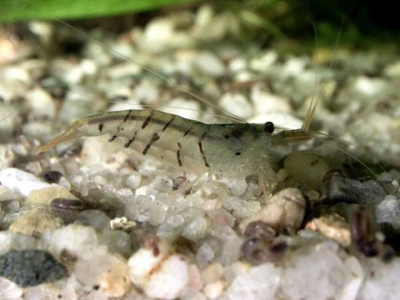Feed ingredient increases post-larval shrimp survival, weight gain

White Dog Labs’ ProTyton product doubles survival rate
Independent testing by the Center for Aquaculture Technologies in Canada (CATC) has demonstrated the potential benefit of White Dog Labs’ ProTyton to shrimp farming: Initial studies doubled post-larval survival rate and increased weight gain by 50 percent.
WDL has developed and scaled up ProTyton, an anaerobically produced single-cell protein ingredient that exhibits upwards of 85 percent crude protein and more than 40 percent essential amino acids. The product is highly digestible and performed well in multiple aquaculture diets and is now being evaluated by major aquafeed companies.
“We are happy to announce these remarkable results, which were demonstrated through a close collaboration with CATC,” said WDL CEO Bryan Tracy.
“We initially tested ProTyton incorporation in salmon feed and preliminary results indicate that we can reduce the overall cost of the diet while maintaining high amino acid digestibility values,” said Dr. André Dumas, director of fish nutrition at CATC. “We accomplished this by replacing half of the 20 percent fishmeal in the control diet with a smaller amount of ProTyton to balance the crude protein and essential amino acids levels. We then decided to test ProTyton’s health benefits with post-larval shrimp, due to the high variability in the survival rate of shrimp in this phase of their growth.”
In preliminary four-week shrimp feeding trials, ProTyton inclusion at 10 and 15 percent (with a single replicate per treatment) doubled survival rate to more than 80 percent compared with a commercial reference diet, and increased weight gain by more than 50 percent.
“We are planning to further validate these results with a larger scale trial, but current outcomes certainly exceed expectations,” Dumas said. “Indications are that ProTyton can be an excellent ingredient for enhancing shrimp survival, growth and health.”
ProTyton is being produced using a 5,000-gallon fermenter at WDL’s Delaware pilot facility. The first ProTyton plant is being designed by AdvanceBio, with shipments expected in the fourth quarter of 2019.
“We are honored to work with CATC,” Tracy said. “Their knowledge and experience expertly guide our development efforts, and their practical expertise inform smoother transition to evaluation by major aquafeed companies.”
Có thể bạn quan tâm
 Shrimp diseases - Dystrophy of muscle & hepatopancreas (Loose Shell Syndrome)
Shrimp diseases - Dystrophy of muscle & hepatopancreas (Loose Shell Syndrome) Loose shell syndrome (LSS) of farmed shrimp has been reported from many parts of the world and is recognized as a major disease problem causing significant
 Shrimp farmers flock to data sharing project
Shrimp farmers flock to data sharing project Over 150 Thai shrimp farmers have signed up to a new collaborative data collection and sharing project that has been launched in a bid to reduce the impact
 Europeans need a new shrimp narrative
Europeans need a new shrimp narrative Consequently, and led by the two bastion species of the sector – black tigers (Penaeus monodon) and Pacific whites (Litopenaeus vannamei)